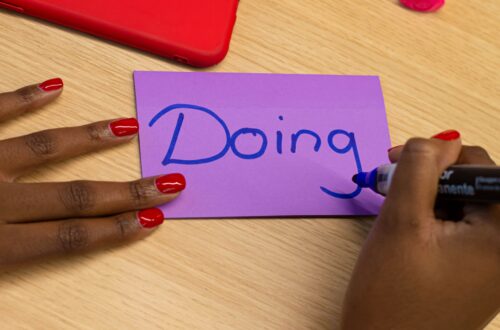Introduction to the Power of Habits
What Are Habits and Why Do They Matter?
Ever brushed your teeth without thinking twice? That’s a habit. Habits are those sneaky, automatic actions that we repeat every day—often without even realizing. They shape our mornings, influence our relationships, and even impact our income. If you’re stuck in a rut or craving transformation, changing your habits might just be the golden key.
The Science Behind Habit Formation
According to research by Dr. B.J. Fogg of Stanford University and Charles Duhigg (author of The Power of Habit), every habit follows a pattern: cue → routine → reward. This is known as the habit loop. Understand the loop, and you unlock the ability to change nearly anything in your life.
Why 21 Days? The Psychology Explained
The Origin of the 21-Day Rule
You’ve probably heard the phrase: “It takes 21 days to form a habit.” That idea came from Dr. Maxwell Maltz, a plastic surgeon in the 1960s, who observed that patients typically adjusted to changes within 21 days. While later research suggests it may take longer, 21 days is a powerful psychological benchmark—a jumpstart.
Can You Really Change in Just 3 Weeks?
Yes… and no. While 21 days won’t make a habit bulletproof, it’s often long enough to rewire your mindset, reduce resistance, and create momentum. Think of it like starting an engine. Once you’re rolling, it’s easier to keep going.
Setting Yourself Up for Success
Choosing the Right Habit
The secret? Start small. Instead of “I’ll run 10 miles a day,” say, “I’ll jog for 5 minutes after work.” The more realistic your goal, the more likely you’ll stick with it. Consistency beats intensity every time.
Defining a Clear Goal
Don’t just say, “I want to read more.” Say, “I’ll read 10 pages of a nonfiction book before bed every night.” Clarity creates commitment. The more specific, the better.
The Daily Habit Formation Blueprint
Day 1–7: Laying the Foundation
This is the honeymoon phase. You’re motivated. Everything feels fresh. Use this energy to create rituals and cues—like setting your workout clothes out at night or prepping a reading nook. Track your progress daily.
Day 8–14: Building Consistency
Here’s where the magic happens—or fizzles. Expect resistance. Life gets busy, you forget, or you’re tired. Fight back. Stick to your trigger cue and reward system. Don’t rely on motivation—rely on systems.
Day 15–21: Creating Automaticity
Your habit should now feel easier. Your brain begins to automate the behavior. Double down. Reflect on your wins, refine your process, and plan for post-challenge continuation.
Tools and Tricks to Keep You On Track
Habit Tracking Apps
There are some amazing free and paid tools like Habitica, Loop Habit Tracker, and Streaks. They gamify the process and help you visualize progress.
Accountability Partners and Journals
Whether it’s a friend, mentor, or even a social media community, having someone to check in with dramatically increases your chance of success. Journaling your thoughts daily also helps process emotions and celebrate victories.
Common Mistakes and How to Avoid Them
Being Too Ambitious Too Soon
“I’ll go vegan, wake up at 5AM, and meditate for an hour every day.” Whoa. Overhauling your life overnight leads to burnout. Focus on one habit at a time.
Skipping Days and Losing Motivation
Missing a day doesn’t mean failure. But missing two? That’s a slippery slope. Use the “never miss twice” rule. Get back on track ASAP and learn from what tripped you.
Examples of Life-Changing 21-Day Habits
Morning Routines That Energize You
Want to start your day with a bang? Try 21 days of:
- Drinking a glass of water upon waking
- 10 minutes of stretching or walking
- Avoiding social media for the first hour
These tiny tweaks can create major momentum.
Financial Habits That Grow Wealth
How about:
- Tracking every expense
- No-spend challenges
- Reading a financial tip daily
In 21 days, you could transform your bank account mindset.
How to Stay Motivated Throughout the Challenge
Celebrating Small Wins
Reward yourself! Did you complete 7 days straight? Get that fancy coffee or binge a show guilt-free. Positive reinforcement keeps your brain engaged.
Visual Reminders and Rewards
Sticky notes, habit calendars, and checklists serve as physical nudges. Your environment shapes your behavior—make it work for you.
Real-Life Stories: 21 Days That Changed Lives
From Couch Potato to Fitness Junkie
Take Sarah, who started with a 10-minute YouTube workout each day. 21 days later, she signed up for her first 5K. Now she’s a personal trainer. It all started with a single video.
A Writer’s Journey: 21 Days to a Daily Blog
Jake wanted to become a writer. He committed to writing 300 words a day. 21 days later, he had over 6,000 words. Today, he runs a successful newsletter.
Beyond 21 Days: What Comes Next?
Turning Habits into Lifestyle
The end of the challenge is just the beginning. Keep going, adapt, and stack new habits. Think of it like adding bricks to a building. Each one counts.
Starting the Next Challenge
Why stop at one habit? Once your new behavior feels solid, challenge yourself again. Layer in another positive habit and watch your life compound in power.
✅ Conclusion
The 21-day habit challenge is more than a catchy trend—it’s a transformative tool. In just three weeks, you can reshape your routines, realign your mindset, and reboot your future. Whether it’s health, finances, creativity, or confidence, small actions repeated daily lead to massive change. Start simple, stay consistent, and trust the process. Because the next 21 days might just be the start of your best life.
❓ FAQs
1. What if I miss a day during the challenge?
No worries! Just don’t miss two days in a row. Learn from the setback and bounce back quickly.
2. Can I do more than one habit at a time?
You can, but it’s not recommended. Focusing on one habit increases your success rate.
3. How do I choose the right habit to start with?
Pick something meaningful but manageable. Start with a habit that excites you or solves a real pain point.
4. Do I need an app to track my habits?
Nope. A notebook works just fine. But apps can add fun and structure.
5. What happens after the 21 days?
Keep going! Reinforce the habit until it becomes second nature. Then build on it or start a new challenge.




